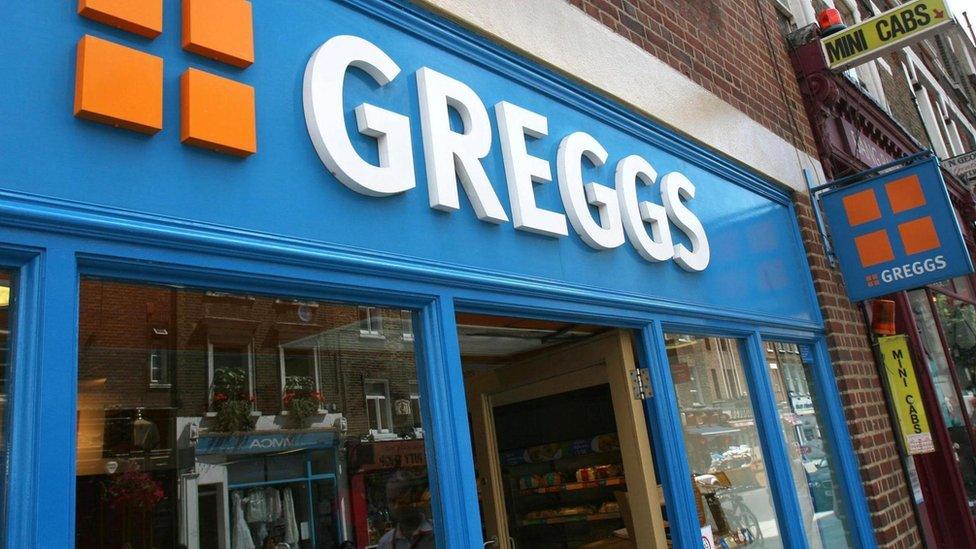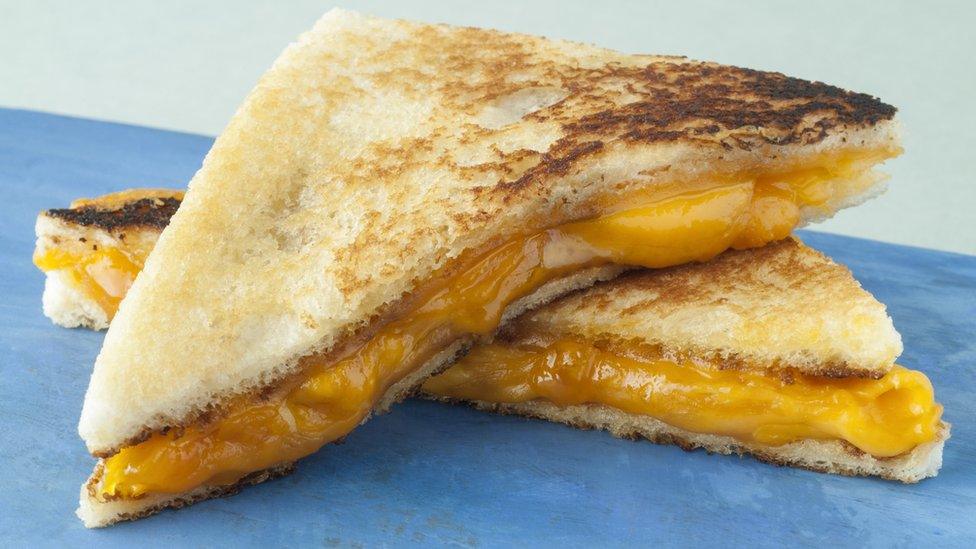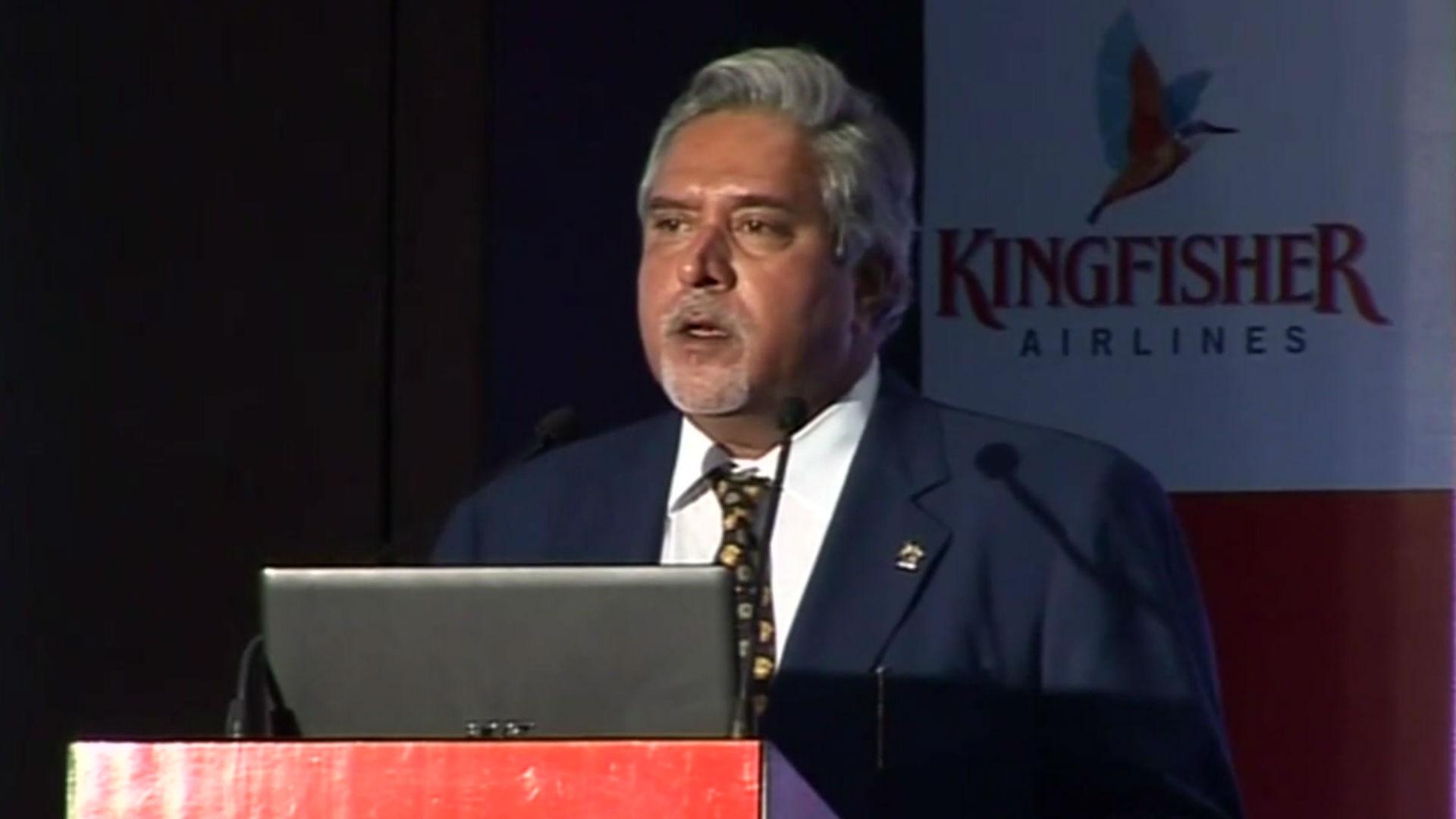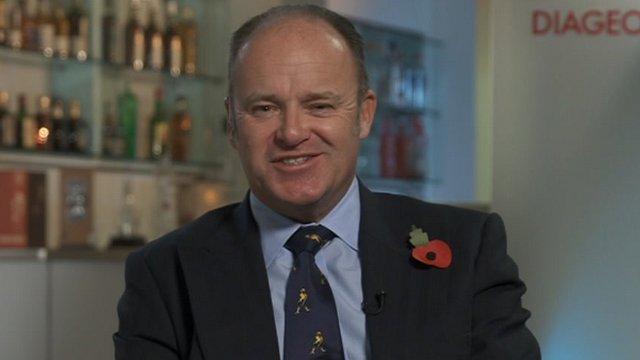Falling footfall meets mobile munching
- Published

The changing shape of Britain's high street is captured this week in new data and results from the retail industry.
One thing it emphasises is that I really ought to stop referring to "the high street". With falling footfall, retail is following where the people are.
We heard on Monday from the voice of Big Retail that it is concerned at the prospect of more than 900,000 jobs being lost from the shift to online, a rise in the floor on low wages, and the apprenticeship levy.
This underlines an economist's view of the minimum wage. For 17 years, it's been set at the maximum level reckoned to avoid a cut in the number of jobs available.
Removing the link with that calculation, and raising it to the arbitrary number picked by George Osborne, means that we're likely to see an impact on jobs.
Yet while job losses are one downside of a higher minimum wage, other sectors are looking at more labour-saving (or productivity-boosting) investment in equipment, which is something the British economy has been needing.

For retail, there are many other moves afoot in customer behaviour, and they are clearer from the annual results just published by two of the biggest presences on the Great British high street.
Gregg's has managed a clever trick of being perceived as a local company in several parts of Britain - selling Scotch pies to Scots and stoaties to its original home market of Tyneside.
It's bigger than you might think, with 20,000 employees. Once known as a baker, Gregg's is less of the place to get a loaf of bread these days, unless you want it as part of a sandwich, including the "heat-to-eat" toastie varieties.
With a lot of refurbishment after growth slowed in recent years, more than 80% of outlets are now designed around "food-on-the-go" - and more conversions are planned.
Coffee has become a feature, offered at a lower price point than the big coffee chains.
To depend less on the hi-vis, high-calorie construction worker traffic or white van man, and to move to the more nutritionally-discerning office worker, the options are getting healthier. A 10th of sales are now classified "healthy options".
Breakfast rush
If it's a stalwart of the British snacking diet, then it is much less focussed on the high street. The place to be is where people are on the move - for commuters, for instance, wanting breakfast in a rush.
Gregg's franchises are opening in motorway services, petrol stations, around transport hubs and at retail and industrial parks (bad news for the independent burger van). The share of outlets in those categories is up, in only two years, from 20% to 27%.
Last year, 122 new outlets were opened and 70 closed. Gregg's has reached 1,700 in total and intends to continue that growth spurt - to 2000 and beyond - now including Northern Ireland.
Note that's not just opening more outlets. It also involves 60 or so closures per year. Many of those are on traditional shopping streets, where leases are up for renewal and footfall is down.
It's worth noting also that £100m of investment over the next five years includes big changes to Gregg's supply lines, starting with closure of three of its 12 bakeries.
As this iced bun sets in the east, with Edinburgh closing at a cost of more than 100 jobs, it rises in the west, where Glasgow gets the firm's first big investment boost.
Having spelled out that set of plans, with 2015 sales up 5% and profits up 25% to £73m, the stock market likes what it sees. The price was up 16%.
Paper losses
Also re-orienting into the food-on-the-go market is McColl's, another British high street stalwart. It has seen its traditional newsagent role in decline, and it's reinventing itself as a convenience store.
Either its legacy is a bit more of a weight to carry, or it is sticking more to the conventional shopping street, or perhaps it's at an earlier stage of transition than Gregg's. Either way, like-for-like sales fell 2% last year. At least pre-tax profits were up from £12.6m to £21.1m.
Four years ago, McColl's had fewer than 500 convenience stores. It now has nearly 900 and by the end of this year, it intends to have more than 1,000.
It's acquiring new sites - 60 last year. It's converting to food and booze. A hundred newsagents have introduced alcohol - "high return on low investment" - and 148 newly offer food-on-the-go.
McColl's is ditching newsagents too. Nearly 100 are being shed and 45 were converted to convenience stores last year.

This is competition for the supermarket giants, which have moved closer to people's homes, in smaller format stores.
Morrison's attempt to do so came too late and didn't last long. Having sold off the few it had opened, it announced this week it is to sell groceries through Amazon - a presence, both respected and feared, that looms large in any discussion of retail revolution.
For McColl's, convenience means being the store of choice within half a mile of most homes.
The company has quite an American approach - including the staples, plus coffee and breakfast, lunch sandwiches and fruit pots, and extended opening.
Emphasising its role as a hub of "neighbourhood services", McColl's took on 72 more postal franchises last year. It is the UK's biggest Post Office operator, with 520 counters in the mix.
Delivery targets
It has had one successful trial of opening a Subway in-store franchise, with more to come, hoping that "it helps to bring into our stores a younger group of customers".
And yes, it still sells newspapers. Indeed, it still delivers them, to 130,000 homes.
The veteran McColl's boss, James Lancaster, is preparing to step down after more than 40 years, for a move along to the corridor to the office of non-executive chairman.
He points out that this is the company that does more than most to introduce young people to the world of work, and early starts.
- Published26 September 2014

- Published9 November 2012
